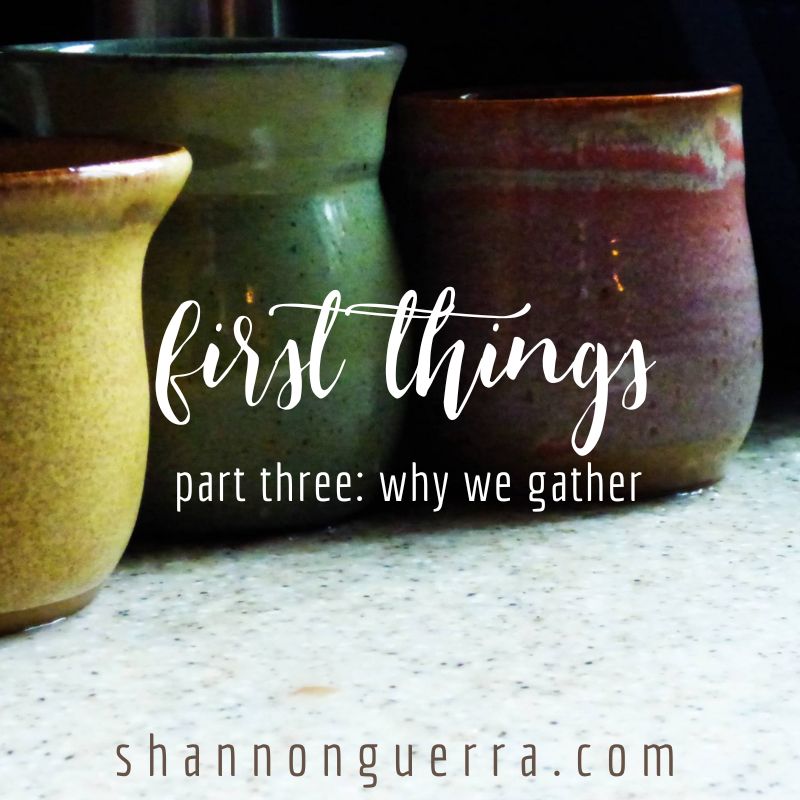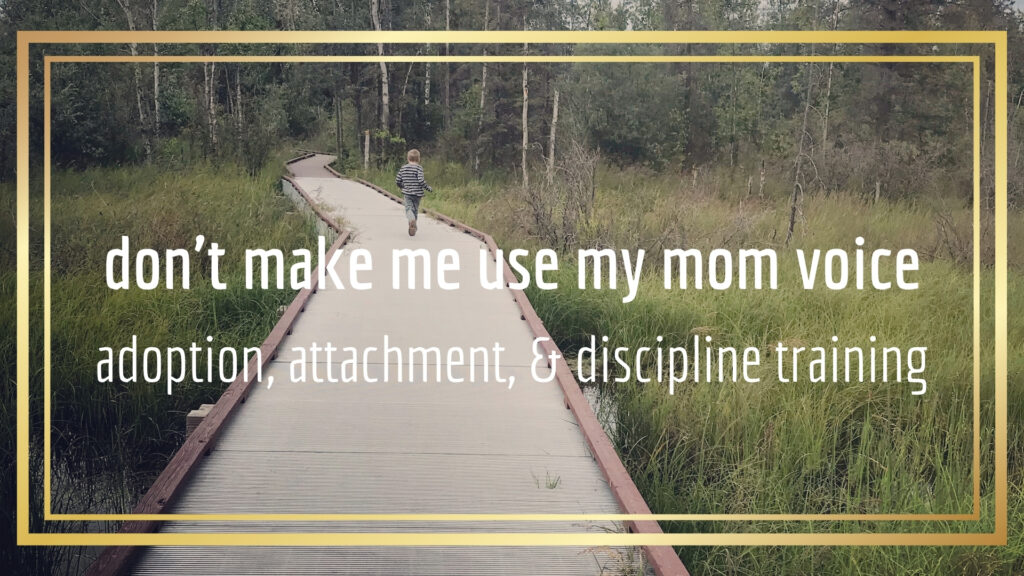A little over a year ago I walked into a living room almost entirely full of people I had never met before.
You know that meme that says “My fashion style can be summed up in the phrase ‘Did not plan on getting out of the car’”? That was me. I looked like I’d been tending chickens all day, and, uh, that was before we even had chickens.

I hadn’t planned on getting out of the car because I was waiting for a kid to walk out to the car. I had been writing all day, so picture the Ultimate Introvert Writer Outfit complete with flannel and mismatched sweater, messy bun, and favorite ratty jeans; I’m sure it was all there. I hoped to walk in unnoticed and catch my kid’s eye, but instead everyone suddenly looked at me.
And then the leader asked me to introduce myself.
Oh, no.
“I’m…Ireland’s mom. I’m here to pick her up.” Oh Jesus, hide me, hide me now, all these people are looking at me and I don’t think I’m even wearing eyeliner.
“Oh! We love Ireland, welcome!” Smiles everywhere. Warmth. Eager acceptance. I immediately knew the Spirit was there, not just with me as I walked in, but already present and extremely active in the room. And it kindled something in me that I hadn’t realized I was so hungry for: A tribe of devoted people on mission together. Deeper roots in our community, and new growth after a year of changes and pruning.
As I type this, it’s fourteen months later. And for almost a year now our whole family has been going to this gathering together – yeah, all of us, awkward, delicate special needs and all, in a small, scary close environment – and we spend at least six evenings a month with these guys in worship, prayer, teaching, fellowship, and ministering to each other. (And also, we finally own chickens. My fashion has not changed, but now at least I have better excuses.)
But why do we bother? We have another church we go to on Sundays. Or, if it comes down to it, why bother with either? Why have Church, why devote the time and energy to gather at all?
Because gathering is one of the first, foundational things. We get fed when we gather. We become unified and stronger when we gather. And the Word gets out when we gather.
And let us consider how to stir up one another to love and good works, not neglecting to meet together, as is the habit of some, but encouraging one another, and all the more as you see the Day drawing near.
– Hebrews 10:24-25
So what is Church? This question has been coming up a lot lately among readers, friends, and our church communities. It also came up recently in our monthly q&a and here’s a clip of that for you if you’re interested, and the transcript follows:
[Transcript: Most of you guys know we go to two different churches; one is a traditional Assembly of God on Sundays and the other is a home church with entirely different people. Two totally different experiences and communities, but lots of mutual friends and connections between them. Both are valuable. The big pulpit on Sunday is valuable to me because it brings unity to the message of the gospel and it brings clarity to the Word and how we apply it. I shared last Sunday’s sermon and our pastor didn’t hold anything back in talking about homosexuality, abortion, or transgender issues, but he did it in love and he did it without apology. This is what the church needs to hear. We need a unifying message that isn’t scared to apply what the Bible says to the events we’re facing right now.
Our small group is more discussion and worship oriented. We pray a lot and minister prophetically to each other. I’m not sure you can get the personalized depth of ministry in a large, normal church setting, but that doesn’t mean that those settings aren’t necessary. You can’t get as much of the large-reaching, unifying message in the small settings of only 20 or 30 people. Both have strengths. And I wouldn’t say that both have weaknesses, because I don’t think they’re designed to have the strengths that the other has. For example, it’s not a weakness of our hands that we can’t walk on them; they’re not made for that. Our hands are made for other things. It’s not a weakness of our feet that we can’t write with our toes. That’s not what our toes and our feet are generally made for. So its not a weakness of small groups that they can’t do what large services do, and it’s not a weakness of large services that they can’t usually minister to the level of personal depth that a home church or really good small group can do.
I think Church should look like it did in Acts – and we see different things there that aren’t all compatible in the same setting. We see them eating together, praying and healing. And we also see Peter and others speaking to huge crowds. We see exploits and danger; we see people willing to do hard and dangerous things. We see people learning to be honest, and facing the consequences of dishonesty. We see prophecy and miracles, we see travels and reunions, we see people transformed from persecutors and doers of witchcraft and everyday teachers into those who follow Jesus and expand His kingdom. We see arguments and accountability and resolution. We see conflicts and the mission carrying on in spite of them. We see persecution and freedom. We see government officials bewildered and curious.
And I think that’s what the church should look like.]
A few weeks ago we sat around the living room in our home church and this theme of first things came up. I came away from the conversation with two revelations.
The first was when a friend pointed out that one of the first things the Lord did was surrender. When He made us, He put us in the garden and surrendered His will over us by giving us free will. He gave us the ability to obey or disobey, to trust Him or try something else. He didn’t want a forced love from us, because that would be no love at all.
Right after that one of our pastors stunned me with the second revelation: “God’s first recorded words to humans were permission, not restriction. You may, He said.”
No way, what? I’d never noticed that, so I looked it up. (You should always check into what your pastor is saying. A good one won’t mind it; they will encourage it.) Here’s the verse, and it’s actually in Genesis 2: “You may surely eat of every tree of the garden, but of the tree of the knowledge of good and evil you shall not eat, for in the day that you eat of it you shall surely die.”
For the record, God talks to humans in Genesis 1, also. Which seems like that would actually come first in the dialogue, but if you pay attention you’ll notice chapter 1 is a summary and chapter 2 begins a more detailed flashback of how God created man and woman. But this, too, was permissive, generous, and empowering. He says:
And God blessed them. And God said to them –
Wait a second. We don’t actually know the first words He said to them here, because it just says “He blessed them, and [then] said to them…” So the first thing was a blessing. And then He said:
“Be fruitful and multiply and fill the earth and subdue it, and have dominion over the fish of the sea and over the birds of the heavens and over every living thing that moves on the earth.”
– Genesis 2:28
And then in the next verse He says:
“Behold, I have given you every plant yielding seed that is on the face of all the earth, and every tree with seed in its fruit. You shall have them for food.”
– Genesis 2:29
God’s first words to humans were about how we are to be fed. And that’s interesting, because it’s also one of the main reasons we gather. A family grows when you feed it – and we’re not just talking about great potlucks.
But solid food is for the mature, for those who have their powers of discernment trained by constant practice to distinguish good from evil.
– Hebrews 5:14
We also become stronger and more unified when we gather. What is the point of the pulpit, or any platform? Communication. But not just any communication; we’re not getting up early on Sunday or devoting one of our evenings every week to listen to someone who just loves the sound of their own voice. We need truth, realignment, confirmation, and conviction. Boldness and clarity. Maturity and wholeness. And when those are preached, it brings solidarity and unity to our communities.
Because Presbyterians and Congregationalists and Quakers and Baptists and others all heard the same message and all were free to respond similarly, Americans were becoming united in the wake of [George Whitefield’s] nonstop preaching. People were being offered a new identity that fit well with the American way of thinking. Some were German by background and some were French and some were English, but none of it mattered: They were all equal under God; they were all Americans.
– Eric Metaxas, If You Can Keep It
How we express Biblical truth is also how we will express truth about current events, and people are hungry to hear it straight from fearless leadership who will dish the Word without watering it down.
For pastors, teachers, leaders, and anyone else with a platform, the time to decide has come: Will we speak boldly, regardless of where the chips might fall? Are we willing to rock the boat to speak truth in love, and to say what the Holy Spirit’s been talking to us about?
It’s not a one-and-done thing. Personally, the Lord keeps challenging me in new ways to not just go deeper in my own private thoughts and processing, but also to allow my public writing to reflect it. And it’s hard to know what to express publicly when you’re still sorting it out privately. I think that’s where a lot of pastors and other leaders have been over the past few years, but they don’t have time to stay at the crossroads. Their decision or lack of it will quickly put them into one of two camps: They will either choose to learn, repent, and grow in transparency before their audience or congregation, or they will waver, shrink back, and cave to pressure and the comfort zone. Whatever they decide will be on display for the world to see.
Events are happening faster than we can keep up with but we have got to take the time to sort things out in abiding, prayer, and quiet thinking so when the time comes for us to speak, our convictions are solidly set and we’re not wavering. We will either grow or stagnate; there’s no room for middle ground, buying time, and putting off public declarations of conviction.
Unity is hard to come by when we don’t know where leaders stand. But when we do, the body is a force to be reckoned with. Our church had zero harassment from the pro-choicers who went around disrupting local congregations on Sundays when Roe v. Wade was overturned. Maybe our church isn’t big enough to draw their attention; it definitely wasn’t because we’re soft on the prolife issue. Or maybe – I mean, maybe this is a just a coincidence, but just maybe it was the fact that around that same time, our elderly greeter who usually wears a hat that says HAPPY HAPPY HAPPY starting wearing a new one with an American flag, a gun, and the phrase “We don’t call 911” on it.
Solidarity, yo. Like I said: stronger together.
And the word gets out. Both our churches are growing in numbers, and dealing with the good problems that come along with higher attendance. We’re making an effort to adjust with excellence while not being slaves to perfectionism or analysis paralysis, because we worship the One who does all things well:
And they were astonished beyond measure, saying, “He has done all things well. He even makes the deaf hear and the mute speak.”
– Mark 7:37
We don’t gather to hibernate; we gather to grow. The prolific message has historically been the one with the most influence, and for half a century the church has been whispering in contrast to an enemy who’s had the bullhorn of every cultural sphere. (Don’t believe it’s been that long? It was sly at first. Look at your paycheck and find out how long ago it was that the government started removing part of it directly from people’s earnings. Hint: It was before World War 2…and World War 1.)
Are we too quiet? Are we too isolated? Because we need to be louder and be together, and if you didn’t pick up on it over the last few years, those values are in direct conflict with the agenda to mask and isolate people.
The most prolific message wins, and the odds in America have always in our favor. We just didn’t take advantage of them, and we abdicated the mic.
I’ve been reading about George Whitefield who changed the course of America before its founding, leading a revival as he preached twice a day and four times on Sunday, anywhere he could.
….but more than anything that would distinguish the faith of Whitefield and that would loft him into the empyrean realm of history changers was the simple fact that he was not too proud to go to people wherever they might be found. If the established churches would not receive him, he would like his master go out into the highways and byways; he would preach in prisons and anywhere else he might be received.
– Eric Metaxas, If You Can Keep It
Anywhere he might be received…have we given up too easily, Church?
….That what Whitefield set in motion has come to be known as the Great Awakening can hardly surprise us. For wherever he went – and he went everywhere – he preached and preached. And wherever he preached hundreds and thousands…came straggling to hear him and were changed by what he said. But it was not a mere mental assent to some theological doctrine. Many, like Benjamin Franklin, observed that people’s behavior changed. Church rolls swelled and those who had been merely filling pews on Sunday suddenly understood why they were there.
– Eric Metaxas, If You Can Keep It
We need to get the Word out – not as know it alls, but as those who can’t help sharing Who they’ve found and what they’ve seen. The quietness from the Church over the past decades reveals that the Church hasn’t actually found or seen that much to talk about.
But that time is over. Something new is happening.
The Church becomes like whatever it gazes at, and He wants our eyes on Him, personally and corporately. He is always first — not us, not our personal change, not our programs or works or even our repentance. Those are all natural occurrences after the one thing, which is seeing and loving and worshiping Him.
Then He will turn our gaze to the rest that He wants us to notice. And when we notice, we will preach from whatever pulpit He’s placed us in. It’s time to grab the mic again, Church. Pick up the pen. Gather and grow so the Word can get out. We are diamonds, catching His light and throwing it everywhere, but only because we gazed at Him first as He shined it upon us.
New to this series? Here’s part one and here’s part two.

P.S. Links for you this month!
- Want to encourage and connect with someone, but you want to say it…differently? We have some fresh new options here, and more coming next month.
- This is a terrific article on detoxing, and has a little info on the Ohio train derailment, too.
- Favorite post from Mr. Guerra this month: Assaulting The Strongholds: An Old Tactic For Modern Times. Pray smarter instead of working harder!
- Have you seen Jesus Revolution yet? We went last night and it was so good! Funny, real, passionate, great acting across the board, and no cheesiness whatsoever. The previews were the worst part of the whole experience (that’s a good time to take your middle schoolers to the bathroom). Highly recommend!
- Want to improve your eyesight so you don’t have to wear glasses forever? This is a great tip.
- Gaining Ground update: We just started Return of the King last week and we’ll vote for the next round of books soon. Want in on this? Join us here for bookishness and memery as we get more books under our belts.
- In a month of amazing sermons, here’s my favorite from February: one that many pastors are afraid to preach, and it was fire, and love, and boldness, and truth, no holds barred.
- Want a unique piece of Alaska that you can wear? My friend started a new business and it’s amazing! Check out her work here – it would be super fun if you all depleted her inventory. ;)



